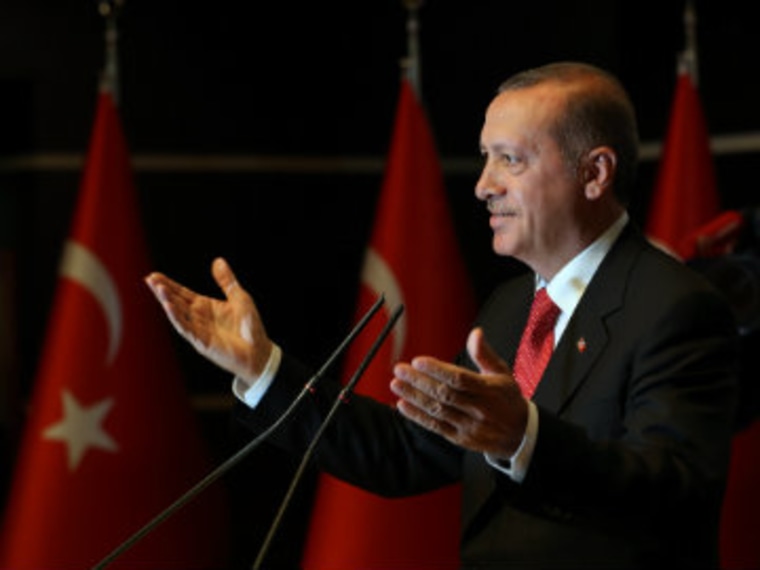Yesterday Recep Tayyip Erdogan was sworn in as Turkey’s president. Does that name sound familiar? Erdogan, who has been Prime Minister for the last 12 years, won the country’s first popular presidential election by 52% and is now looking to cement his power as modern Turkey’s most powerful leader. I traveled to Istanbul earlier this month and talked with people there about what exactly Erdogan represents to them in 21st century-Turkey.
Erdogan’s track record was positive during his first few terms, but secular Turks are now increasingly disenchanted with their new president. He rose to popularity as a champion of reform and westernization. Under his 3 terms as prime minister, the Turkish economy grew - 5% since 2002 - and the army was brought under civilian control. Turkey even made a run at joining the European Union in 2005.
But then something changed. Last summer, amidst Erdogan’s consolidation of military power, he began to display increasingly autocratic behavior. We remember the protests in Taksim Square last year and the outcries over Prime Minister Erdogan’s attempts to limit access to social media.
Erdogan now wants to expand presidential power in a position intended to be purely ceremonial. But that would require a constitutional amendment… Not a good sign to many Turks. One man I talked with called Erdogan a “dictator.” Another expressed disgust at the decision to hold the presidential elections in the middle of August, when a large portion of Turkey’s educated and wealthy population (translation: those who would be likely to vote against Erdogan) would be vacationing and unable to cast a vote.
Turkey has long stood as a model for “western-style democracy with a Muslim population.” However, all of the Turkish people I chatted with made a clear distinction between today’s secular Turkey – one that wishes for a more seamless integration with the West – and the rising conservative, Muslim middle class in regions like Anatolia. And it worries many that Erdogan has begun to shore up his support from these Muslim communities. One tour guide told me that an increasing number of conservative Muslims are visiting Istanbul on vacation. These days, one will see just as many women in burqas walking around Istanbul’s tourist hotspots as women in bathing suits and cutoffs. Many Turks wonder if the Turkey established in 1923 by Ataturk, the country’s visionary founder, is slipping from their fingers. Is it no longer possible to keep the separation between church & state?
Turkish people also worry that the seismic shift they are beginning to feel in their country echoes a larger regional political radicalization. I couldn’t get through a lunch or a dinner without people lamenting Turkey’s abysmal track record on foreign policy, or people asking me what people in the U.S. must make of it.
It’s difficult to find a piece of news about ISIS that does not include mention of Turkey these days. There have been endless news stories over the last few months about the foreign jihadists looking to join ISIS who gain entry to Syria or Iraq via Turkey’s porous borders. Raqqa, the Islamic State’s center of command in Syria, also happens to border Turkey. Over 1 million Syrian refugees have trickled into Turkey and, according to a Turkish financier I talked with, are now making their way to Istanbul. In this latest round of Israeli-Gaza violence, Erdogan called Israel’s rocket attacks on Gaza a move that “surpassed what Hitler did.” And while the new president has again stated that normalizing relations with Israel will not happen anytime soon, he also has to hedge his bets, aware that keeping Turkey a U.S. ally and a member of NATO in good standing is strategically savvy.
I got the sense that Turkish people don’t want to be subsumed by this Middle Eastern mess, but can no longer bear to watch Erdogan’s irrational leadership. They feel the ground under their feet is rocky, and they are helpless in the face of a man thirsty for power.
Yesterday's swearing-in is a turning point for this country – one way or the other – and how it turns will be important to the West. It will be interesting to watch. Keep your eyes on this space.
